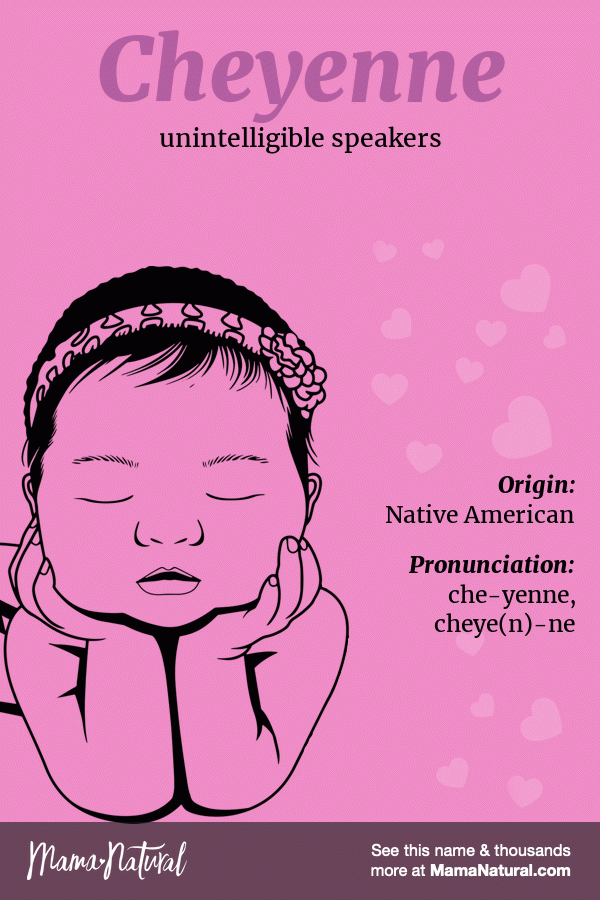
Echoes of the Plains: The Profound Meanings Behind Cheyenne Traditional Names
In the vast, undulating landscapes of the Great Plains, where the wind whispers tales of buffalo herds and resilient spirits, the Cheyenne people have long woven their history, identity, and cosmology into the very fabric of their existence. Central to this intricate tapestry of culture are their traditional names – not mere labels, but living narratives, spiritual anchors, and profound expressions of an individual’s journey and connection to the world. Unlike the often arbitrary or familial designations common in Western societies, a Cheyenne name is a universe of meaning, a reflection of character, a historical marker, and a prayer for the future.
To understand a Cheyenne name is to glimpse into the soul of a people deeply connected to the land, the sky, and the intricate web of life. It is to appreciate a naming tradition that views the act of naming as a sacred ceremony, a recognition of inherent spirit, and a prophecy of a life yet to unfold.

The Genesis of a Name: A Sacred Revelation
For the Cheyenne, names are rarely chosen; they are revealed. The process is a departure from the simple act of bestowing a moniker. Instead, it is a deeply spiritual and communal endeavor, often involving elders, respected family members, or spiritual leaders who possess the wisdom and insight to discern the true essence of an individual.
"Our names are not mere labels; they are maps of our journey, whispers of our ancestors, and prayers for our future," explains Ateana Little Bird, a fictional elder and cultural preservationist, embodying the sentiment widely held within the Cheyenne community. "They connect us to the land, to the animals, and to the stars. A name isn’t just given; it is seen, it is felt, it is understood."
This revelation can come in various forms. It might be through a vision or a dream experienced by an elder. It could be inspired by a significant event occurring at the time of a child’s birth – perhaps a unique meteorological phenomenon, the presence of a particular animal, or a striking characteristic of the newborn. A child born during a rare snowfall might be named "White Cloud," or one whose cries resonate with power might be "Roaring Thunder." These names are not just descriptive; they imbue the individual with the qualities and spiritual essence of the event or entity they represent.
The naming ceremony itself is often a communal affair, reinforcing the idea that an individual’s identity is inextricably linked to their family and tribe. It is a moment of communal recognition and blessing, where the community formally acknowledges and welcomes the new spirit and its designated path.
A Living Biography: Names That Evolve
Perhaps one of the most fascinating aspects of Cheyenne traditional naming is its dynamic nature. Unlike many cultures where a birth name remains constant throughout life, a Cheyenne individual’s name can, and often does, change as they grow, mature, and achieve significant milestones. This fluidity reflects the belief that a person’s identity is not static but a constantly evolving narrative, shaped by their experiences, deeds, and spiritual journey.
A person might receive a childhood name, perhaps whimsical or descriptive of their early temperament. As they enter adolescence, a new name might be revealed, reflecting emerging character traits or a significant event during their coming-of-age. Later, as adults, they might earn powerful "honor names" or "achievement names" through acts of bravery, wisdom, leadership, or spiritual insight. A warrior who distinguished himself in battle might receive a name like "Brave Wolf" or "Bear Shield." A woman known for her wisdom and nurturing spirit might be called "Wise Woman" or "Standing Tall."

This tradition of evolving names means that a person’s life story is etched into their very identity. Their names become a living biography, chronicling their achievements, their struggles, and their spiritual growth. The famous Northern Cheyenne chief, Dull Knife, for instance, earned his name through his unwavering determination and resilience, much like a dull knife that, though not sharp, can still cut through the toughest hide with persistence. Similarly, Little Wolf, another renowned Cheyenne leader, embodied the swiftness, cunning, and protective nature of the wolf. These were not arbitrary labels but powerful epithets earned through lives of consequence.
The Lexicon of Nature and Spirit: Categories of Names
Cheyenne traditional names draw heavily from the natural world, a testament to the deep reverence and intimate connection the people share with their environment. The animals, the elements, celestial bodies, and the landscape itself serve as a rich vocabulary for naming.
- Animal Names: These are perhaps the most common and potent. Animals are not merely creatures; they are teachers, guides, and spiritual kin. A name like "White Antelope" might signify grace, swiftness, and purity of spirit. "Brave Bear" conveys strength, courage, and protectiveness. "Eagle Feather" speaks to vision, spiritual power, and connection to the divine. The qualities of the animal are believed to be imparted to the person, or to reflect qualities already observed within them.
- Celestial Names: The sun, moon, and stars hold profound spiritual significance. "Morning Star" (Vó’ėstanéhe) is a particularly revered name, representing guidance, beauty, and new beginnings. It is often associated with the first light of dawn, symbolizing hope and renewal.
- Elemental and Landscape Names: Names derived from natural phenomena or geographical features like "Thunder Cloud," "Running Water," "Red Earth," or "Tall Tree" connect the individual to the power and stability of the natural world. They signify attributes like resilience, adaptability, or grounding.
- Event-Based Names: As mentioned, names can commemorate significant events surrounding a birth or a pivotal moment in a person’s life. These names serve as mnemonic devices, preserving tribal history and personal narratives.
- Character and Action Names: These names directly describe a person’s inherent qualities or notable deeds. "Walks Far," "Stands Strong," "Singing Bird," or "He Who Hunts Well" are examples that encapsulate a person’s defining attributes or achievements.
Each name, regardless of its category, is imbued with a spiritual dimension. It is a constant reminder of one’s place in the universe, one’s responsibilities to the community, and one’s connection to the sacred.
The Shadow of Assimilation and the Dawn of Revitalization
The profound significance of Cheyenne traditional names faced an existential threat with the advent of European colonization. The forced assimilation policies of the late 19th and early 20th centuries actively suppressed Indigenous languages, cultures, and spiritual practices. Children were removed from their families and sent to boarding schools, where their traditional names were often stripped away and replaced with English names. This act was not merely administrative; it was a deliberate attempt to sever ties to heritage, identity, and the spiritual world.
"When they took our names, they tried to take a piece of our soul," lamented a fictional Cheyenne elder, echoing the deep pain of that era. "They wanted us to forget who we were, to forget our stories, to forget our connection to our land and our ancestors."
For generations, the practice of traditional naming went underground or diminished significantly. The continuity of cultural knowledge was broken, and many younger generations grew up without understanding the rich legacy embedded in their ancestral language.
However, the Cheyenne people, like many Indigenous nations, possess an indomitable spirit of resilience. In recent decades, there has been a powerful resurgence of interest in cultural preservation and revitalization. Language immersion programs, cultural education initiatives, and a renewed emphasis on traditional practices are bringing the wisdom of the ancestors back to the forefront.
Today, many Cheyenne parents are actively choosing traditional names for their children, reclaiming a vital piece of their heritage. Elders are tirelessly working to pass down the knowledge of naming conventions, the meanings of names, and the spiritual protocols associated with them. This movement is not just about historical accuracy; it is about strengthening identity, fostering pride, and ensuring the continuity of the Cheyenne way of life for future generations.
"Every time a child is given a traditional name, it’s an act of defiance against the past, and an act of hope for the future," says a young Cheyenne cultural activist. "It’s a declaration that our language lives, our culture thrives, and our stories will continue to be told."
The Enduring Legacy
Cheyenne traditional names are more than just words; they are living testaments to a vibrant culture, a deep spiritual connection, and an enduring legacy. They are whispers of the wind across the plains, echoing the wisdom of the ancestors and guiding the footsteps of the living. Each name carries a universe of meaning, a personal narrative intertwined with the collective history of a proud and resilient people.
In a world increasingly homogenized, the Cheyenne naming tradition stands as a powerful reminder of the profound beauty and wisdom inherent in Indigenous cultures. It teaches us that a name can be a prayer, a prophecy, a map, and a living story – a sacred bond between an individual, their community, and the timeless spirit of the land. As the Cheyenne people continue to revitalize their language and traditions, these names will continue to resonate, ensuring that the echoes of the plains carry the profound meanings of their identity for generations to come.


